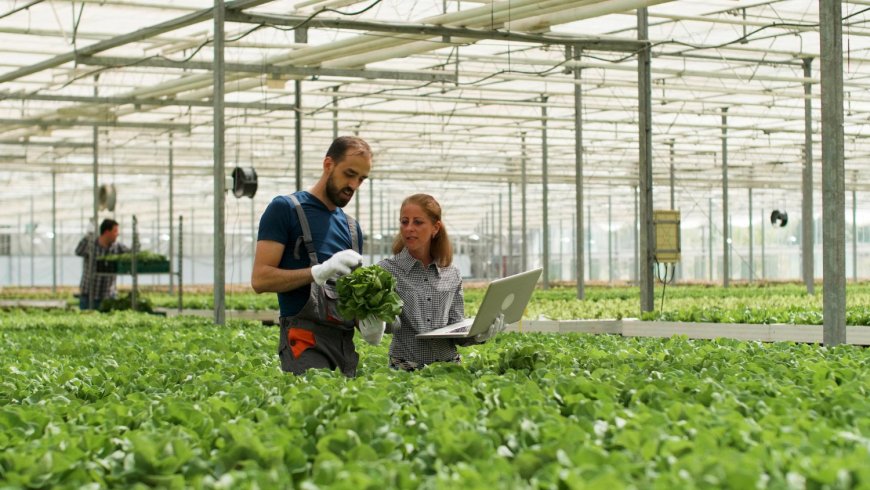Farm bookkeeping software: your ultimate guide
Discover efficient farm management with our top-rated farm bookkeeping software. Tailored for the agricultural sector, it simplifies financial tracking, expense management, and revenue analysis, ensuring your farming business thrives. Perfect for farmers seeking streamlined operations.

Ever pondered how contemporary agriculturists manage their financial intricacies, making sure their operations not only succeed but also yield profits in a sector characterized by its volatility?
Introducing farm bookkeeping software: an innovative solution that evolves the conventional method of manual record-keeping into an interactive, digital interface. But why is this software considered essential rather than just an additional convenience for today's farmers? Let's dive into the unique features and advantages that farm financial software offers, highlighting its role in transforming the field of agriculture, one financial statement at a time.
Key Attributes of Farm Bookkeeping Software The market for farm management software, along with data analytics, is projected to grow at an impressive Compound Annual Growth Rate (CAGR) of 17.47% between 2021 and 2026, reaching a global market value of around 1.1 billion USD as of 2020. North America, in particular, is a significant contributor to this growth, thanks to its swift embrace and implementation of data-centric technological advancements in farming, with a market worth close to 500 million USD.
Agricultural bookkeeping plays a vital role in farm management, emphasizing the organized documentation, monitoring, and evaluation of financial transactions within an agricultural enterprise. It covers an extensive array of tasks and considerations, aimed at assisting farmers in effective financial management, enhancing profit margins, and facilitating well-informed decisions. Below are the essential components typically involved in agricultural bookkeeping:
Income Documentation
- Catalogs all income sources, such as sales from crops and livestock, government grants, and other farm-associated earnings.
- Aids in determining the most profitable farming ventures.
Expenditure Tracking
- Keeps a record of all farm expenses, including costs for seeds, fertilizers, labor, machinery upkeep, and utilities.
- Crucial for budget formulation and pinpointing areas for cost reduction.
Asset Oversight
- Documents and monitors the valuation of all farm assets, like land, buildings, machinery, and animals.
- Beneficial for calculating depreciation and assessing the farm's overall value.
Debts and Loans Supervision
- Maintains records of all agricultural debts and liabilities, such as loans and credit facilities.
- Useful in strategizing debt repayment and ensuring financial stability.
Inventory Control
- Tracks stock levels of farm supplies, crops, and livestock.
- Important for operational planning and preventing surplus or deficit.
Payroll and Workforce Management
- Handles all aspects of farm labor, including salaries, benefits, and taxes.
- Guarantees adherence to labor regulations and promotes equitable labor practices.
Tax Management and Strategy
- Simplifies precise and prompt tax filing, incorporating specific farm deductions and credits.
- Aids in reducing tax obligations through careful planning.
Budgeting and Economic Forecasting
- Supports in crafting comprehensive budgets and financial forecasts.
- Allows farmers to plan for future expenditures and evaluate financial stability.
Cash Flow Examination
- Scrutinizes the timing of cash inflows and outflows to maintain sufficient cash availability for financial commitments.
- Averts cash shortages and enhances financial decision-making.
Profitability Evaluation
- Assesses the financial success of various farm sectors and activities.
- Influences strategic choices related to crop variety, operation expansion, and resource distribution.
Technological Foundations of Farm Bookkeeping Software The caliber of farm and ranch bookkeeping software varies based on numerous factors. As specialists in AgriTech, the team at Qaltivate is adept at advising on the most suitable solutions tailored to your unique needs. Identifying the ideal technology requires a blend of technical expertise and a thorough understanding of your business needs. Below are the technologies we recommend:
Cloud Computing Facilitates the storage and retrieval of data over the internet, enabling users to handle their financial records from any location with web access. It supports instantaneous updates and collaborative efforts.
Mobile Development Technologies Employs platforms for developing applications for both iOS and Android devices, allowing seamless data access and entry in the field or any location within the farm premises.
Database Management Systems (DBMS) Crucial for the safe storage, retrieval, and administration of vast amounts of financial information. Well-regarded options include MySQL, PostgreSQL, and MongoDB, chosen based on the specific needs of the software.
Web Development Tools Utilizes frameworks such as React, Angular, or Vue.js for front-end development, alongside Node.js, Ruby on Rails, or Django for back-end development, to craft dynamic and user-friendly web applications for bookkeeping.
API Integration Enables the incorporation of external services, like weather updates, market prices, or details on governmental subsidies, offering additional insights for better decision-making.
Artificial Intelligence (AI) and Machine Learning (ML) Applied for advanced analytics, including predicting financial trends or crop yields, and for automating repetitive tasks, such as expense categorization or anomaly detection in financial records.
Blockchain Technology Although its adoption in farm bookkeeping software is emerging, blockchain promises secure transaction logging and traceability, potentially enhancing supply chain oversight and certification processes for organic products.
Security Measures Incorporates encryption, robust access controls, and data protection strategies to safeguard sensitive financial data against unauthorized access and security breaches.
User Interface/User Experience (UI/UX) Design Vital for creating software that is both intuitive and navigable, catering to users with diverse technological proficiency.
Analytics and Reporting Capabilities Features integrated analytics and customizable reporting options, enabling users to interpret their financial data through visual dashboards, comprehensive reports, and key performance indicators.
Conclusion The advancement of farm bookkeeping software marks a pivotal development in agricultural management, marrying traditional financial monitoring with the latest in technology. As the farming sector evolves, facing market fluctuations, environmental challenges, and the need for sustainable practices, these software solutions emerge as essential tools.
Equipped to meet the specific requirements of agricultural operations, including tracking income and expenses, managing assets and inventory, and providing in-depth analytical insights, farm bookkeeping software not only eases financial management but also empowers farmers to make informed, data-driven choices.
The anticipated growth in the farm management software and data analytics market highlights the growing appreciation for technology's role in agriculture. Looking ahead, the integration of digital tools into farm financial planning is set to significantly influence the sector's resilience and productivity. By adopting these technologies, farmers and agribusinesses can enhance profitability, ensure sustainability, and confidently tackle the challenges of modern agriculture.
What's Your Reaction?
 Like
0
Like
0
 Dislike
0
Dislike
0
 Love
0
Love
0
 Funny
0
Funny
0
 Angry
0
Angry
0
 Sad
0
Sad
0
 Wow
0
Wow
0









































































































